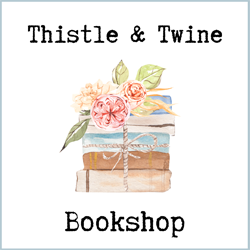
Little Women Next Door
written by Sheila Solomon Klass
188 pages // published in 2000 // children's fiction
My Review...
Little Women Next Door is a fictional biographical account of Louisa May Alcott as a young girl. The hard work of the author (Klass) shines through, as she brings to light many points that show us how Louisa grew into the writer who penned the American classic, Little Women.
The story is told to us through the eyes of a young girl, Susan, neighbor to the Alcotts. She receives the delightful opportunity to watch all the interesting things the Alcotts do and gets to befriend Louisa herself.
What I learned about... THE ALCOTTS...
Before reading this book, I understood that the Alcotts led a "different" life, compared to the other people of their time, but I didn't quite understand how or why. Now I feel like I've been introduced to many concepts and the basic ideas that the Alcotts tried to capture and implement at their farm, Fruitlands.
The "Newness" that the Alcott practiced (or their Transcendentalism) led them to do odd things by many standards. For starters, the family became vegans -- to the point of not even using animal products for clothing or household necessities. To use a sheep for its wool was to turn the animal into a slave.
So much so did the family oppose slavery (human or animal), that even though they were Christians, they left the church because the church did not actually condemn slavery. So they became Consociates. Their lifestyle closely resembled Quakers and Shakers.
"First, sir, I want to assure you that I am a Christian, and it is my belief that Jesus Christ was the wisest teacher ever to come on earth." (Chapter 4, Little Women Next Door)
The men grew beards when most other farmers didn't.
"Child, this beard is mighty costly." He stroked the edges of it fondly. "It cost me a whole year in jail." (Chapter 4, Little Women Next Door)
What I learned about... LOUISA...
As for Louisa May Alcott herself. Oh, what a joy she was as a child -- if this book is anything to go by! What struck me first in Klass's representation of Louisa in that the girl bubbles over with an Anne Shirley mentality. She loves using big words, dreaming up the most daring ideas, and rather doesn't mind silly things. As the main character of the story, Susan, believes... Louisa was "born brave". In the words of Mr. Alcott, Louisa had a "marvelously creative mind".
Louey said, "I shall be a famous actress and write things that earn trunkfuls of money. And I shall never be a young lady. I'm going to be a scapegrace." (Chapter 5, Little Women Next Door)
Even the famous poets, Emerson and Thoreau, make their appearance in the story. Both of these writers were great friends of the Alcotts, and most likely inspired Louisa to take up her own pen.
I did so enjoy this book, and greatly recommend it to anyone interested in where Louisa May Alcott came from. Her family was certainly unique, and it makes for a great study in history to see how the ideas of Transcendentalism affected her career as a 19th-century authoress.
NOTE to the discerning reader & parents: Some (very minor) language is used. Particularly a certain phrase that the girls take a liking to, and is sometimes repeated.
P.S. See this review on Goodreads and Amazon.













This is one of my favorite juvenile books on Louisa because of the unique point of view of Susan, a more typical child of the age. I love how Susan blooms through her friendship with all the Alcotts. By seeing the Alcotts through the eyes of Susan, I came to see just how special the Alcotts were. It put Bronson in an uncharacteristically positive light, one that I think he deserved for he really did care about children despite all of his other issues.
ReplyDelete@Susan Bailey
ReplyDeleteI too enjoyed how the Alcott family was portrayed through the eyes of their young neighbor Susan. It's a very informative read, especially for fiction.